Junkyard Gem: 2005 Suzuki Verona

The ways of the far-flung GM Empire could be mysterious, a couple of decades back, especially when Daewoo and/or Suzuki were involved. After The General’s (relative) success selling the Daewoo LeMans with Pontiac badges here, Daewoo decided to bring three models to the United States with its own badging: the Lanos, Nubira and Leganza. Unfortunately for that effort, Daewoo’s CEO fled South Korea to evade embezzlement and fraud charges just as the first models hit American showrooms in 1999, and the company went bankrupt soon after. The last year for the trio of Daewoo-badged models here was 2002… but we weren’t done with those cars yet! Today’s Junkyard Gem is an example of the next-generation Leganza, found in a Denver-area self-service wrecking yard recently.
GM began selling Suzuki cars in North America with the Chevrolet Sprint (aka Suzuki Cultus) in 1985. The following year, Suzuki began importing the Jimny with Suzuki Samurai badging. Many Suzukis followed over the next quarter-century, with Chevrolet, Geo and Suzuki branding applied along the way.
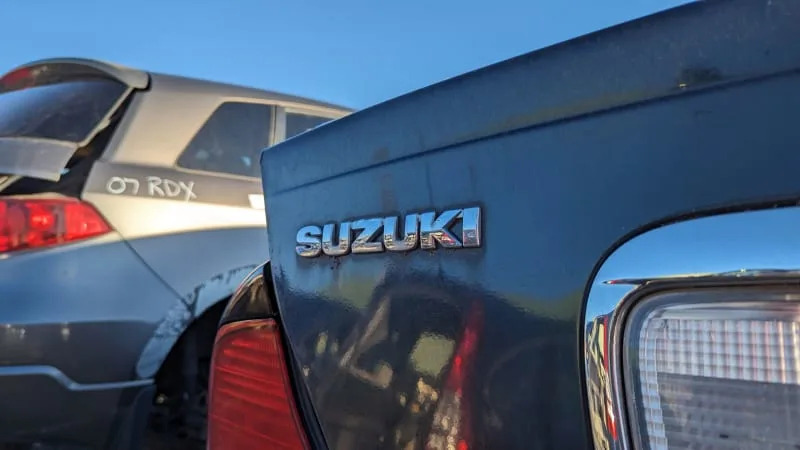
Since GM bought all of Daewoo’s car-building operations during the chaos of the early 2000s, it made sense to keep selling the descendants of the three Daewoo models that had been offered here. They’d have made sense as Geos, but the Geo brand got the axe after 1997. Saturn? For Opels, sure, but not Daewoos. Isuzu had gone all-truck here after the final Styluses and Storms left the showrooms as 1993 models (though the Honda Odyssey was sold here with Isuzu emblems), so that was out.
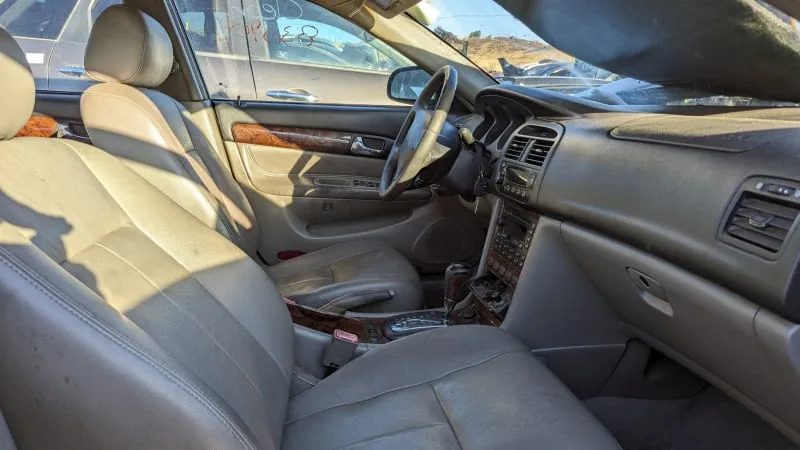
So, Chevrolet and Suzuki got the honors. The next-generation Daewoo Lanos subcompact became the Chevrolet Aveo, the next-generation Daewoo Nubira compact became the Suzuki Reno, and the next-generation Daewoo Leganza midsize sedan became the Suzuki Verona.
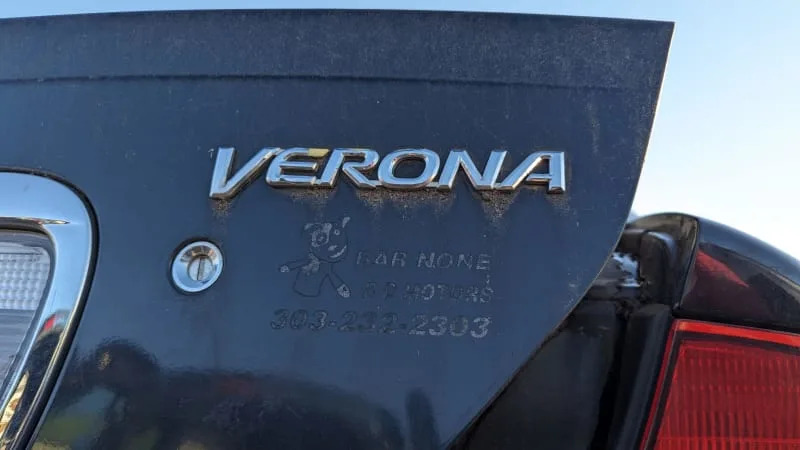
The Verona was available for just the 2004 through 2006 model years. Note that the dealership decal features the Pets.com Sock Puppet. That’s because the now-defunct 1-800-Bar-None company bought the rights to the Sock Puppet in 2002 (two years after Pets.com went kerblooey as the highest-profile casualty of the Dot-Com Crash) and used it in their advertising.
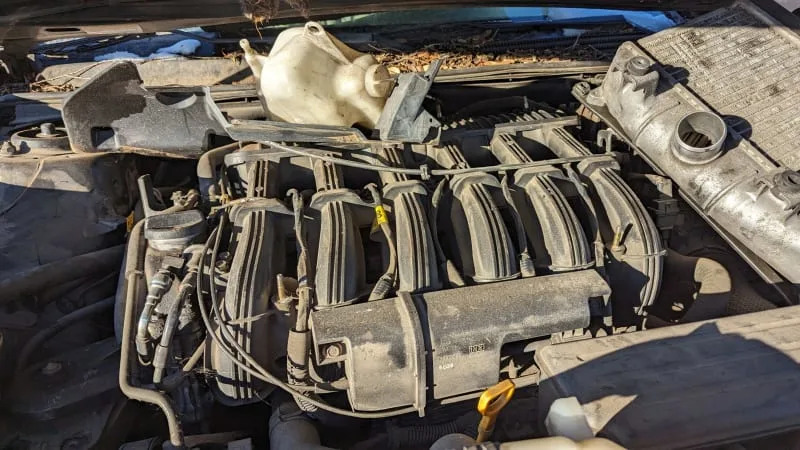
All Leganzas had four-cylinder engines driving the front wheels, but the Verona got this very unusual longitudinally-mounted straight-six rig. It thus joins the Volvo S80 in the elite club for this powertrain setup.
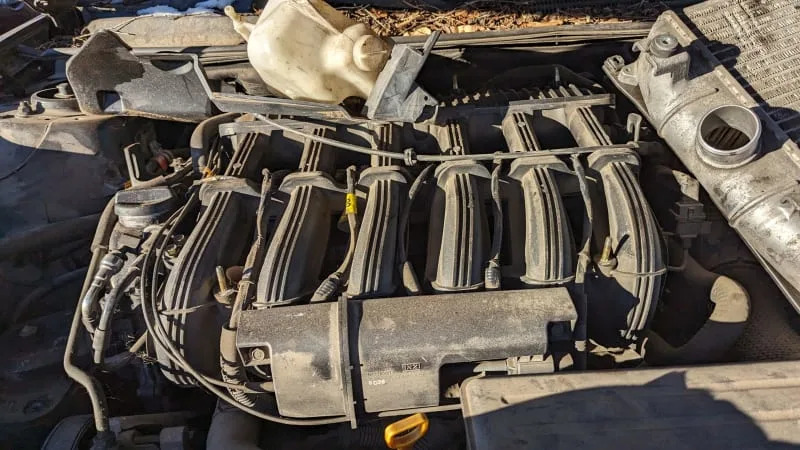
The Verona had a very good price tag for a largish sedan with a six-cylinder engine ($17,449 for the ’05 base model, or about $28,152 in 2023 dollars), but the fine print posed problems for Suzuki dealers. This engine displaced a mere 2.5 liters and was rated at a stingy 155 horsepower and 177 pound-feet, which wasn’t any better than the 157-horse four-banger in the cheapest Toyota Camry that year (though, to be fair, straight-sixes tend to be smoother operators than straight-fours).
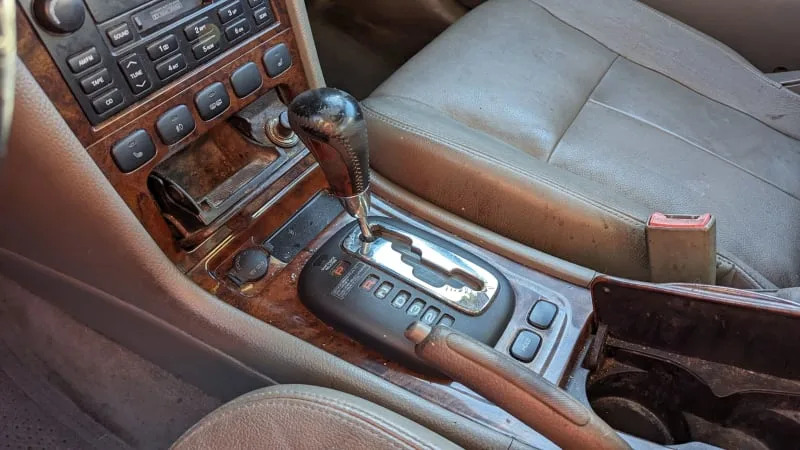
Unlike the penny-pinchingest Camry, however, the base Verona came with an automatic transmission as standard equipment.
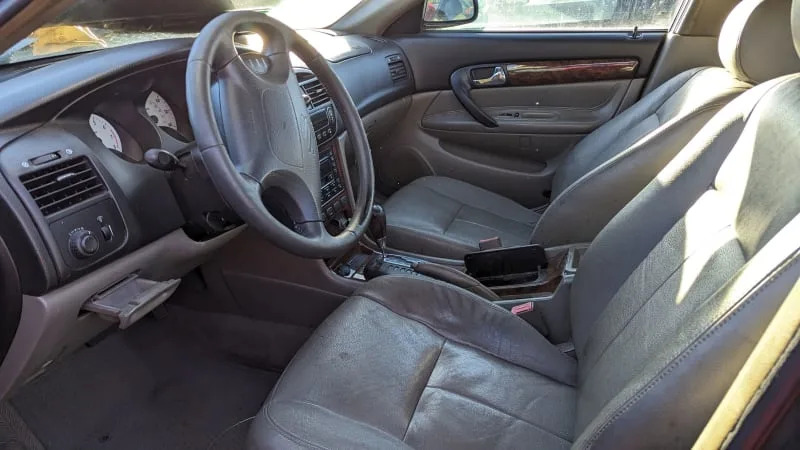
This car is the top-grade EX model, which came with heated, leather-trimmed seats and other goodies. Its price tag: $20,549, or $33,153 in today’s money.
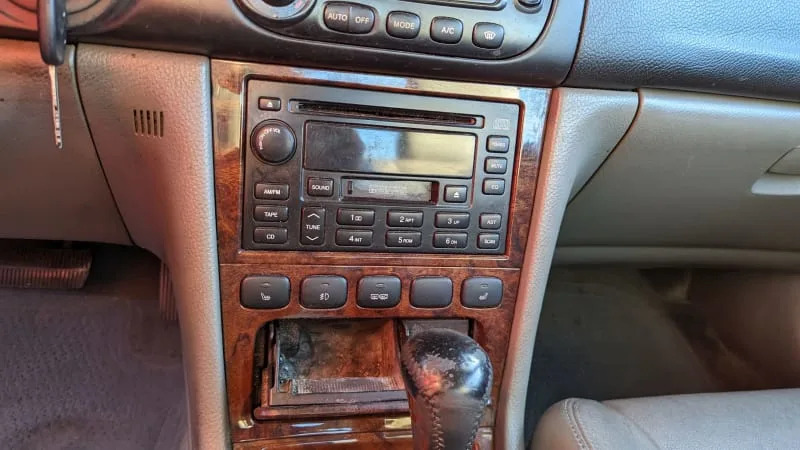
Cassette and CD, though no satellite radio and no auxiliary jack (some Suzuki-built vehicles had XM-ready radios with the ability to plug in your iPod at this time).
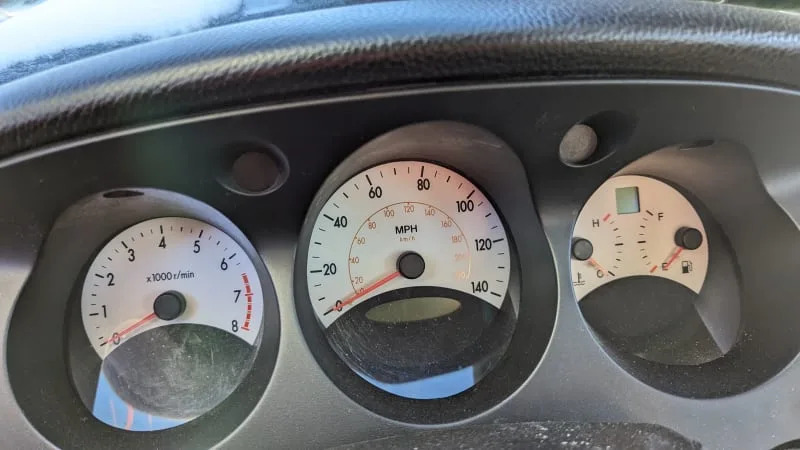
Though Suzuki has been spectacularly successful in its home market with the Hustler, Jimny and more, and still sells plenty of motorcycles and ATVs here, the 2013 Kizashi was the last hurrah for four-wheeled highway-legal Suzuki machinery in the United States.
The U.S.-market commercials for the Verona were tedious, so let’s watch a more nerve-ripping ad for its Taiwan-market sibling, the Formosa Magnus.
In its South Korean homeland, this car was sold as the Daewoo Magnus. The big Magnus, that is.
In Eastern Europe, it was known as the Chevrolet Evanda.
Yes, cars based on the Daewoo Magnus were sold in the furthest outposts of the mighty GM Empire, upon which the sun never sets.







